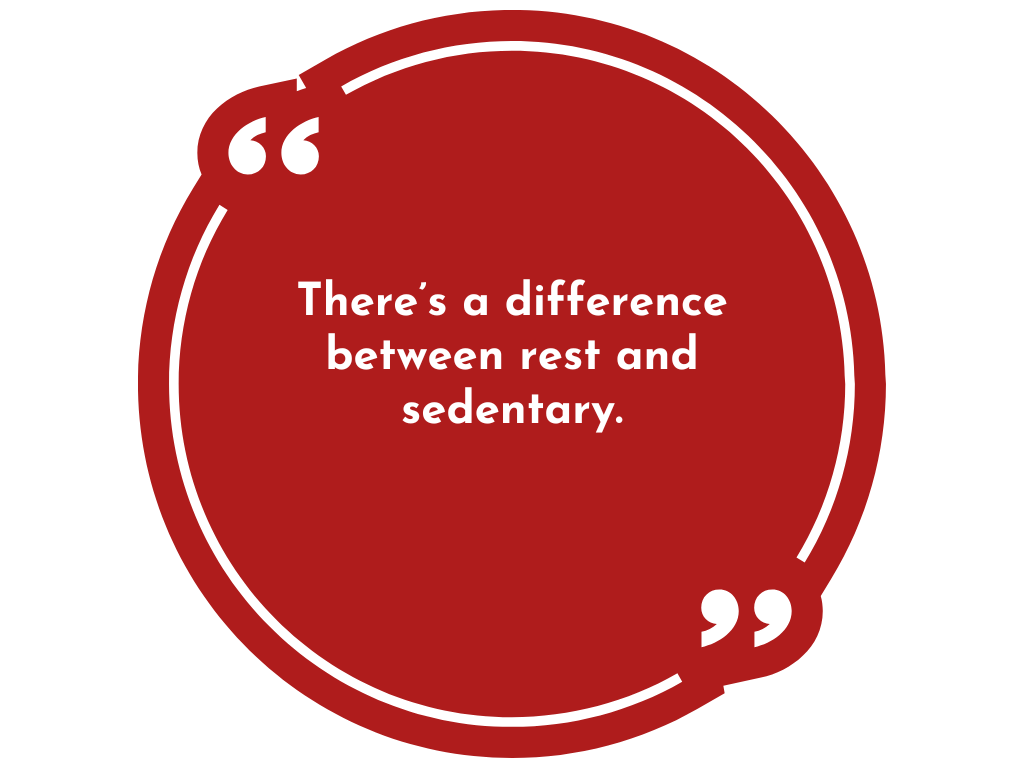Rest and recovery are crucial aspects of a healthy lifestyle, particularly in the context of blood clot prevention and recovery.
Benefits of adequate rest
- Supports overall well-being.
- Helps manage stress.
- Aides in weight-loss.
- Allows the body to heal and regenerate.
Proper rests is more than sleep.
It’s taking breaks during the day, and ensuring your body has sufficient time for recovery after exercise or strenuous physical activity.
Blood clot survivors can struggle with the idea of resting. Believing that not being in constant motion will trigger another blood clot.
 Physical rest is crucial for the body’s overall health and performance.
Physical rest is crucial for the body’s overall health and performance.
Sedentary involves extended periods of sitting or lying down, with little to no movement or participation in exercise or activities that raise the heart rate.
Blood Clots and Sleep
Remember that blood clots are a cardiovascular event, often sharing the same risks and related cardiovascular diseases .
While more research is needed, recent studies show that interrupted sleep disrupts the central clock in our brain that regulates our vascular system that regulates blood pressure.
Higher blood pressure/hypertension is a leading risk factor for strokes.
Experimental data from this research also suggest that even short-term sleep deprivation can alter blood pressure, inflammation, and hormones in a direction that is recognized to contribute to the development of cardiovascular disease, most importantly atherosclerosis – future studies are needed to further understand and build on this data.
Disrupted sleep goes beyond busyness, stress and anxiety. Sleep can be impacted by stages of life changes (menopause) and other medical conditions.
Growing evidence is supporting a link to obstructed sleep apnea (OSA)and blood clots. Further research is needed since it may not be OSA on it’s how, but OSA in combination with obesity.
The pro-inflammatory state along with intermittent hypoxia that is invoked in OSA is associated with blood hypercoagulability, venous stasis, and endothelial dysfunction leading to deep vein thrombosis (DVT) and pulmonary embolism. (PE)
PMID: 35371730
Conversations with your doctor to identify your sleep disruptions are important.
Work together to develop a plan of action for proper rest.